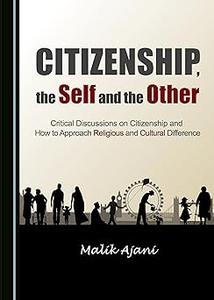
Free Download Malik Ajani, "Citizenship, the Self and the Other: Critical Discussions on Citizenship and How to Approach Religious and Cultural Diff"
English | ISBN: 1443870498 | 2015 | 265 pages | PDF | 1120 KB
In today's world, people speak more than 6000 languages and identify with thousands of cultural groups and a large variety of different religions. Despite such a number of differences, these and other features of human diversity are housed politically, inside roughly 200 nation-states. Thus, the contemporary reality of human diversity far exceeds the number of nation states in the current international order. Globally speaking, a diverse citizenry is an unavoidable fact for most countries across the planet. Additionally, developments such as transnational migrations, rising socio-economic inequalities, the "War(s) on Terror", and political movements based on absolutist ideologies continue to raise broader questions of justice, governance, equality, quality of life and social cohesion. As such, recent decades have witnessed a revival of debates concerning what it means to be a "citizen". In response to such trends, countries such as Australia, Canada, and Britain have committed themselves to teaching citizenship through their national curriculums. Moreover, all European Union member states have integrated some form of citizenship education into their primary and secondary curriculums. Acknowledging such developments, this book uses discussions with citizenship educators as a backdrop for a critical analysis of various conceptions of citizenship, such as liberal, social-democratic, civic-republican, cosmopolitan and multicultural citizenship. It also analyses how these educators approach the contemporary reality of nation states, which are richly composed of a diverse citizenry. Given Britain's transformation into a multi-ethnic and multi-faith society, this book develops, as a case study, an understanding of how religious and cultural difference can be addressed. What makes this work unique is that it gleans ideas and research from a wide field of international scholarship, such as political science, philosophy, education, and cultural studies, as well as from citizenship educators in England. A further unique aspect of the book is that it uses the q-methodology, a research method used to study people's viewpoints, to reveal some shared perspectives on citizenship. In doing so, the path traced here leads to the discovery of spaces where citizenship educators-despite their ethnic/religious diversity-display 'common ground' on values, beliefs and aims related to citizenship. This book will prove to be a useful resource for academics, educators and political leaders, as well as interfaith and civil society professionals at large. It is worth mentioning that even though this book has benefited from the generously contributed ideas of citizenship educators in England, its scholarly research, lessons, arguments, analysis and suggestions, which focus on multi-faith and multi-ethnic societies, will also be useful elsewhere.
Read more
